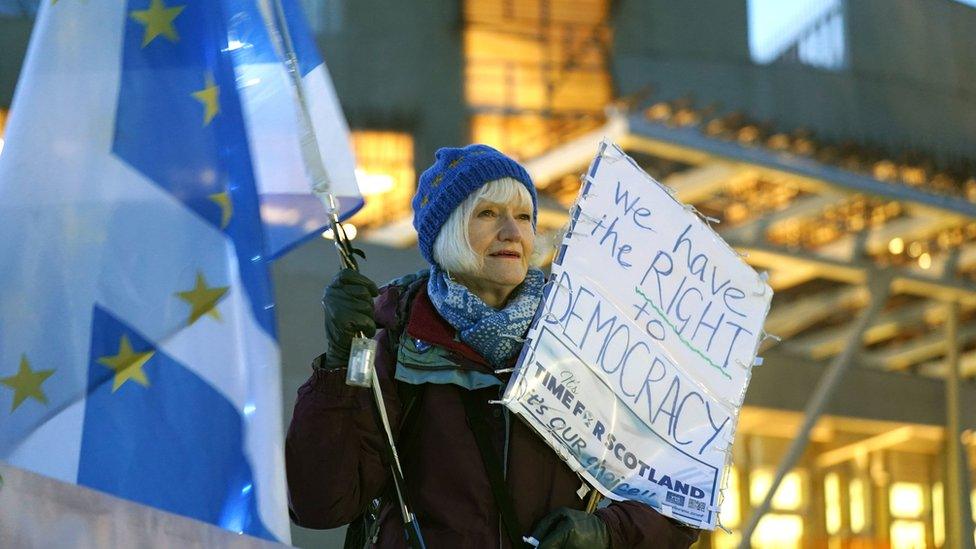A year of one political crisis after another
- Published
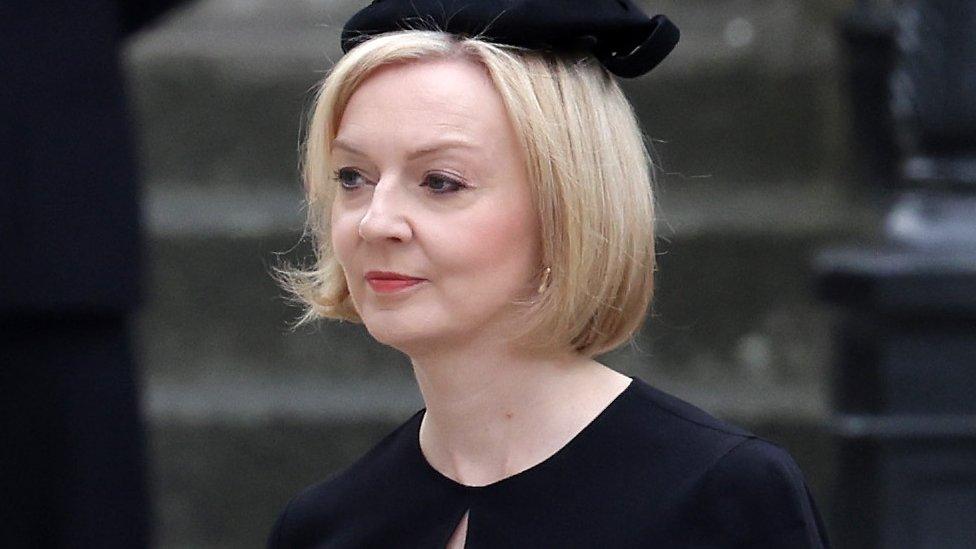
Liz Truss was Britain's shortest-serving prime minister
Three prime ministers. Two heads of state. One crisis after another. That, in short, is the story of 2022.
There was also a UK Supreme Court ruling that cancelled plans for an independence referendum next October.
In Scotland, we started the year in Covid-19 restrictions and ended it with a huge NHS backlog and long waits for treatment.
The full costs of curbing public services and economic activity during the pandemic are still being counted.
The public inquiry that might do some of that work stalled with the resignation of its chairwoman, the judge Lady Poole.
As the Covid-19 emergency eased, the war in Ukraine fuelled an energy price spike and wider cost of living pressures.
Thousands of Ukrainian refugees fled to Scotland, with many temporarily housed on ships in Edinburgh and Glasgow.
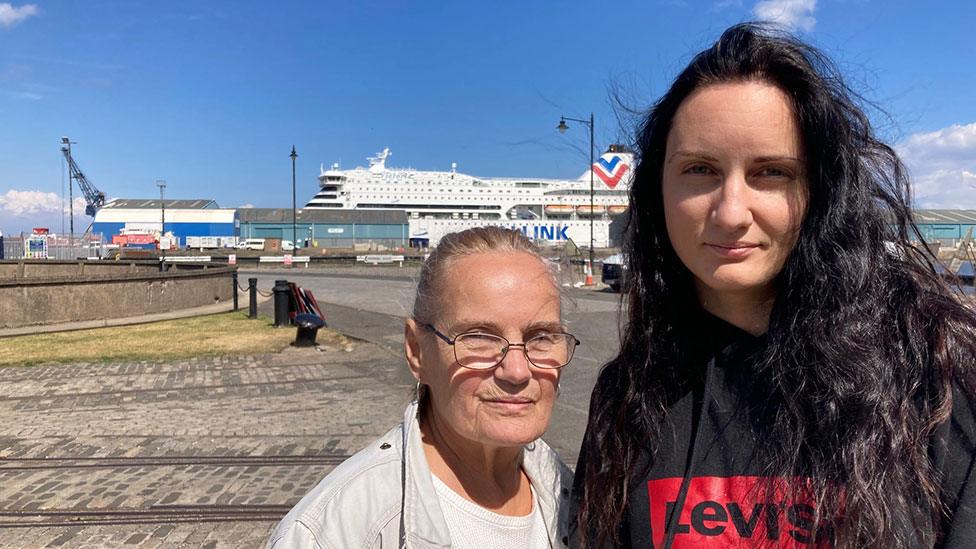
Ukrainian refugee Mariana Zdzhanske travelled to Edinburgh with her mother, who has dementia
The UK government has been at the forefront of efforts to arm and train the Ukrainian military.
It has also borrowed billions of pounds to reduce the impact of rising gas and electricity bills on household budgets.
As chancellor, Rishi Sunak announced a support package the day after Sue Gray's report into lockdown parties in Downing Street.
That gave Boris Johnson only temporary respite from the scandal that did so much to undermine his premiership.
It caused a huge rift with the bulk of the Scottish Conservative group at Holyrood and their leader, Douglas Ross.
He demanded the PM's resignation in January only to suspend that call when Russia invaded Ukraine the following month.
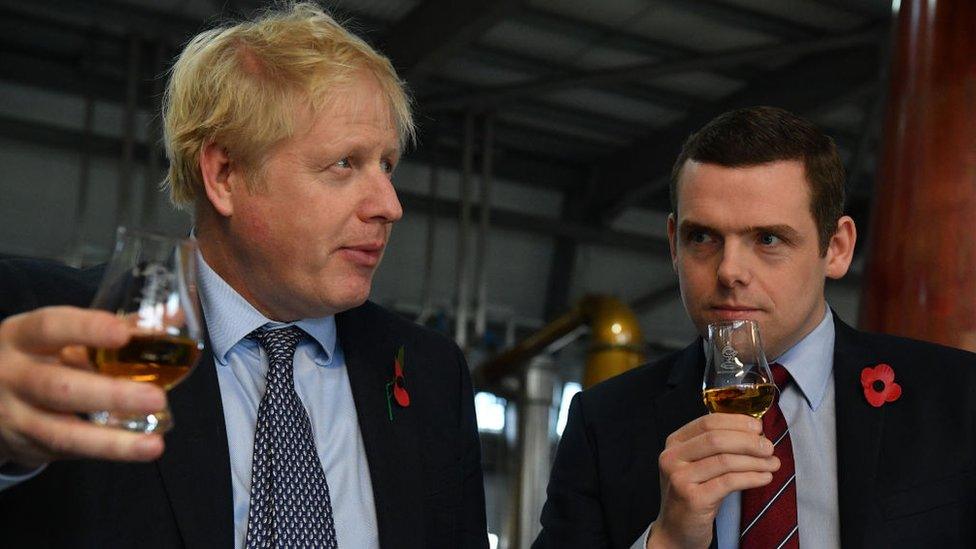
Mr Ross wrote to the 1922 committee calling for a leadership contest after saying Mr Johnson's position was untenable
His flip-flop and Partygate itself did the Scottish Tories no favours in the local elections where they slipped into third place behind Labour.
The SNP got the most votes and seats in what was their 11th successive victory in a Scotland-wide election.
They remain the dominant force in Scottish politics after more than 15 years in power.
Boris Johnson survived a confidence vote of Tory MPs only to be forced out by mass resignations from his government.
Having led that rebellion, Rishi Sunak lost out to Liz Truss in the leadership contest that followed.
She travelled to Balmoral to be appointed prime minister by the Queen two days before Her Majesty's death.
Large crowds lined the streets of Scotland to pay their respects to a monarch who Ms Truss said had been "devoted to the union".
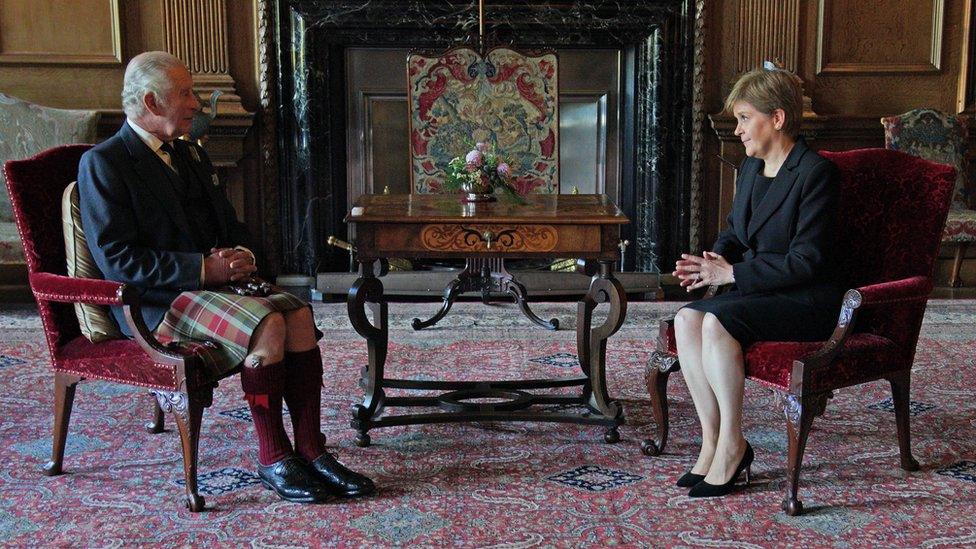
Nicola Sturgeon paid tribute to the Queen and welcomed King Charles to the throne
At Holyrood, Nicola Sturgeon described the Queen as the "anchor of our nation" as she welcomed King Charles to the throne.
Within weeks, Liz Truss had destroyed her premiership with a disastrous tax-cutting mini-budget that spooked the markets.
She became the Britain's shortest-serving prime minister in the same year that Nicola Sturgeon outlasted all previous first ministers of Scotland.
Not that everything went Ms Sturgeon's way this year. She couldn't celebrate her longest-serving moment because she got Covid-19.
There have been pay strikes by teachers, rail workers and bin collectors, with NHS staff due to walk out in the new year.
The vastly overdue, overbudget ferries from the Ferguson shipyard continue to erode the Scottish government's reputation for competence.
And controversial reforms to make it easer to legally change gender prompted the biggest ever SNP rebellion at Holyrood.
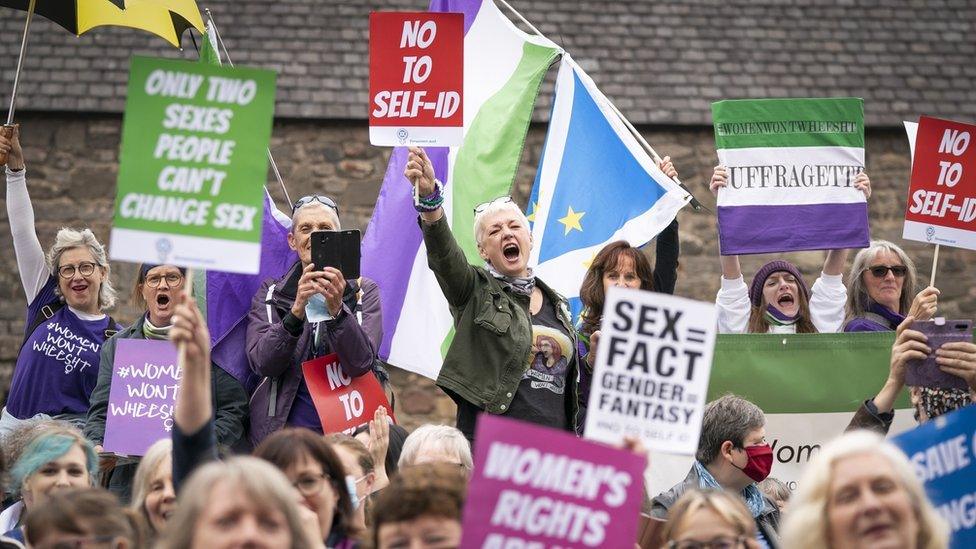
Opponents of the gender recognition reforms protested outside the Scottish parliament
Meanwhile, the party's MPs at Westminster forced out the first minister's ally, Ian Blackford, as their leader.
That came after the UK Supreme Court ruled that Holyrood cannot hold another independence referendum without Westminster's approval.
That indefinitely delays indyref2, except that Nicola Sturgeon intends to treat the next UK election as if it were a vote on independence.
The detailed approach to this massive political gamble is to be decided at a special conference in the spring.
The SNP are heartened by a short run of opinion polls that suggest 'Yes' is currently ahead.
Further tumult
In the same way, Labour are encouraged by the UK polling trend that suggests they are on course to take power from the Conservatives.
The party is promising to redistribute power throughout the UK, not least as an alternative to Scottish independence.
It is Rishi Sunak's challenge to turn around his party's fortunes, as the third Tory PM this year - the fifth since the Brexit vote.
That's easier said than done when inflation is sky high, interest rates and taxes are rising and public spending is to be squeezed.
The UK's financial challenges are reflected in Scotland, where ministers decided to put a penny on income tax for higher earners.
They are maintaining a new £25 a week child payment to help poorer families.
In challenging times, further tumult is inevitable, although it's hard to imagine the year ahead being anything like as eventful as 2022.
- Published23 November 2022
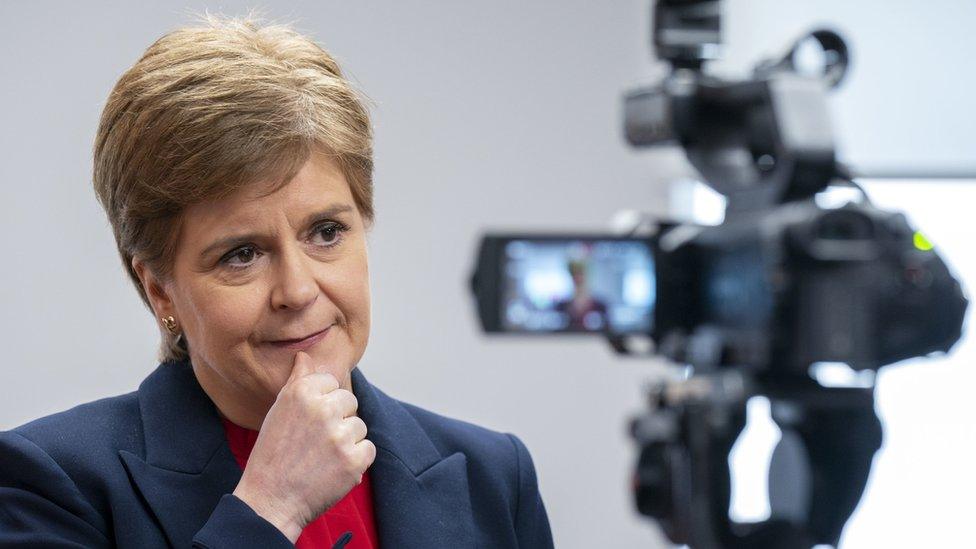
- Published6 December 2022
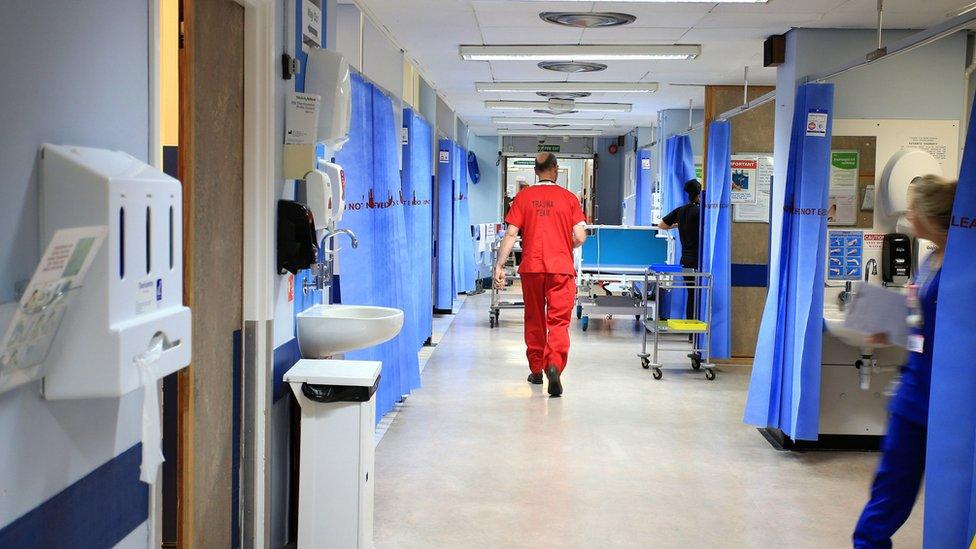
- Published30 July 2022
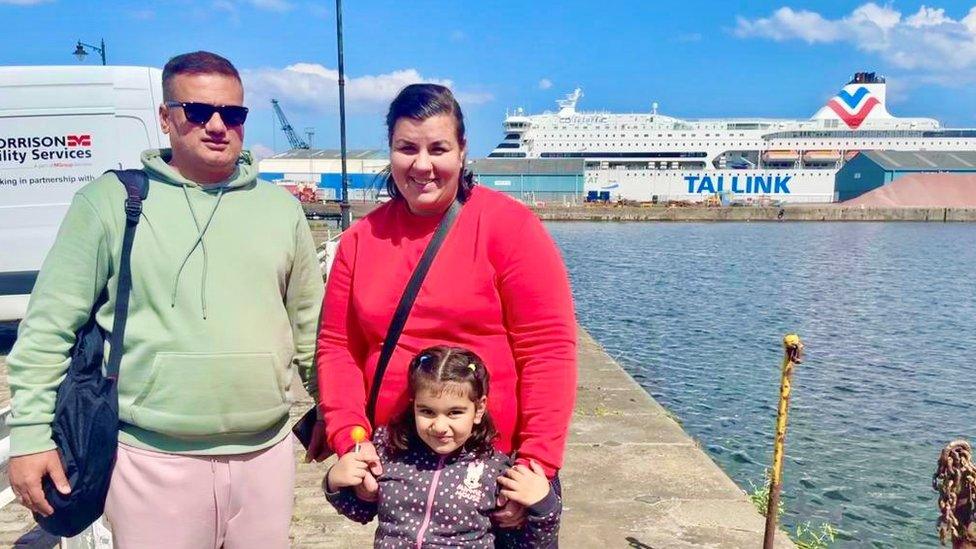
- Published25 May 2022
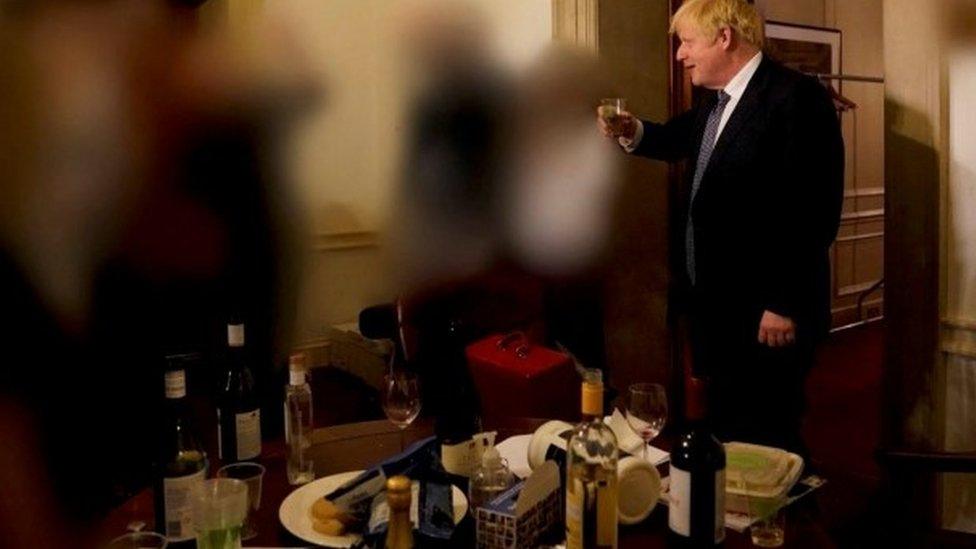
- Published27 September 2022
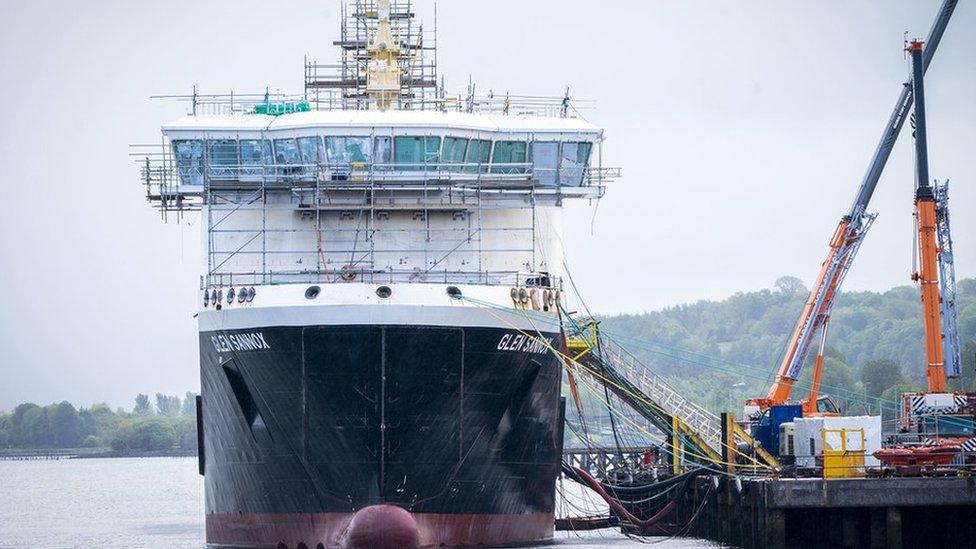
- Published28 October 2022
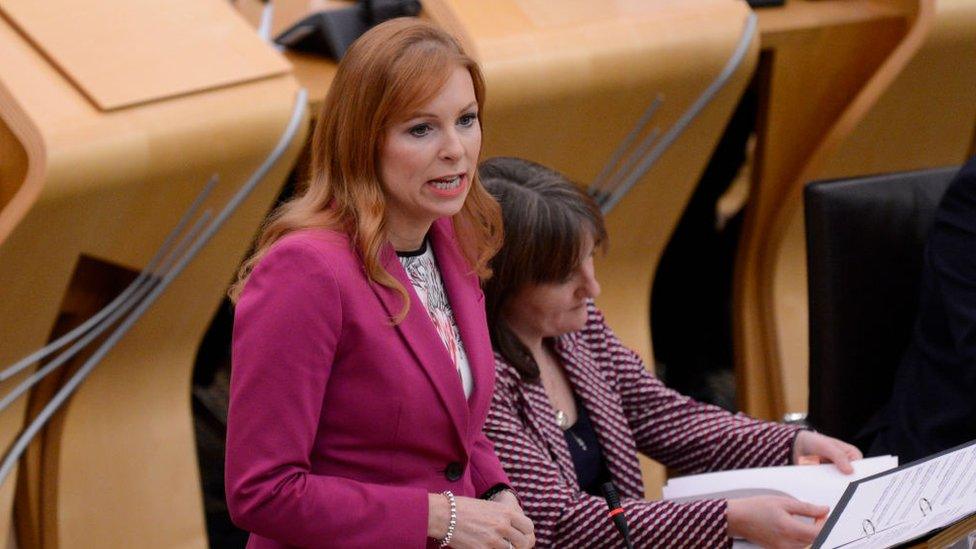
- Published23 November 2022
